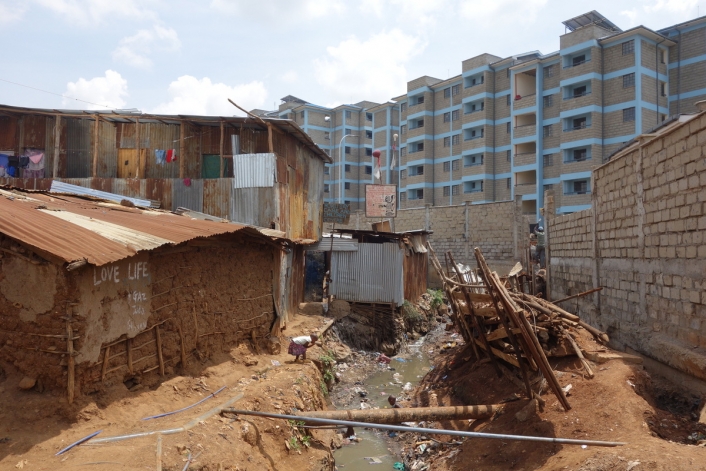By Sophie Hares/ Thomson Reuters Foundation
Booming cities in developing nations should upgrade slums, build on underused land and promote rental choice to tackle a fast-growing crisis caused by a shortage of affordable housing, researchers said on Wednesday.
About a third of people in developing-world cities live in informal settlements, where they often lack access to basic services, said a report from the Washington-based World Resources Institute (WRI).
Globally, 1.6 billion people in urban areas are expected to need affordable homes by 2025, up from 1.2 billion today, as cities attract more migrants, it added.
“We think it’s a crisis when one-in-three households – one-in-three citizens that live in cities – don’t have adequate, secure or affordable housing,” said Robin King of WRI’s Ross Center for Sustainable Cities.
According to the report, 56 percent of Africa’s urban population live in slums – rising as high as 90 percent in some countries like Ghana – while in India, it is 24 percent.
Report co-author King told the Thomson Reuters Foundation that if action does not begin now in some cities in Africa and South Asia, “the problem will be much, much worse”.
Mid-sized cities in particular, which tend to have the fastest expansion rates, need to respond quickly before it’s too late, she added.
Improved housing would help boost cities’ economic growth, reduce their environmental impact and lower social inequality, the report said.
Moving families from slums to poorly serviced new communities on the fringes of sprawling cities has often left them isolated and with limited job options, forcing them to undertake costly commutes each day for work, it said.
To cope with the housing shortage, slums should be made part of the solution by involving residents in programs to upgrade them and providing better safety, jobs, health and education, it added.
Schemes are underway to improve favelas in Rio de Janeiro and slums in Indonesia, for example.
“Poor people can improve their lives through incremental upgrading of their homes – and that can only be possible if they feel some sense of security,” said Sheela Patel, chair of Shack/Slum Dwellers International, a network of community-based groups for the urban poor.
For that to happen, governments must provide amenities and ensure land tenure, she told a call for journalists.
‘Backyard’ Rentals
Revamping and strengthening the home rental market while offering rent subsidies could help informal workers struggling to meet requirements for entry-level home loans, said WRI.
Ways to open up more shelter in cities include regulations to better protect tenants and landlords, easier access to arbitration, and rule changes so that people can rent a single room or even “hot-bed” for a few hours, said the report.
Moves by South Africa’s Gauteng province to legalize hundreds of thousands of “backyard rentals” – often shacks or rooms tacked onto the backs of houses – have helped ease Johannesburg’s housing problem, said WRI.
Rent-to-own deals and collective ownership schemes can also expand choices, it added.
Other options to help poor people find affordable homes include incentives for developers to build low-cost housing as part of urban regeneration schemes and techniques to increase housing density like those used in São Paulo.
“Land in cities is worth an awful lot, especially (in) fast-growing cities, even if incomes are low,” said Diana Mitlin, professor of urban development at Britain’s University of Manchester. “There is often a problem in ensuring well-located land is allocated to low-income groups.”
Thomson Reuters Foundation is the charitable arm of Thomson Reuters, that covers humanitarian news, climate change, resilience, women’s rights, trafficking and property rights. Visit news.trust.org/

